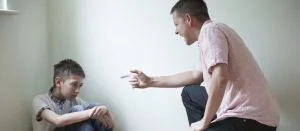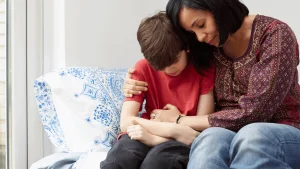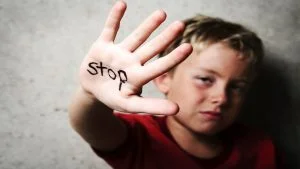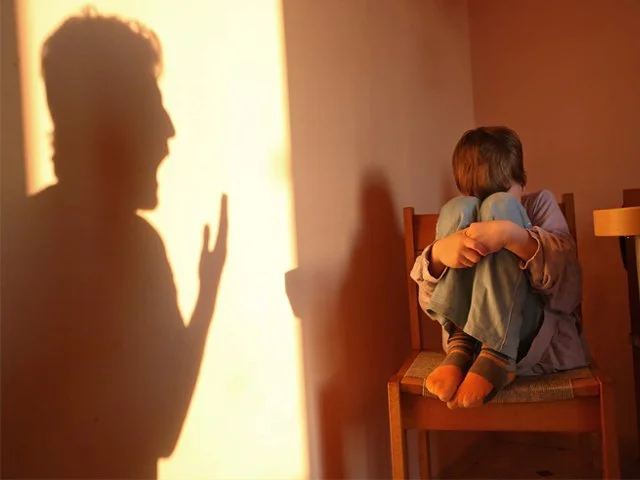Contents
- 1 What Is Parental Abuse?
- 2 How Can You Identify Parental Abuse?
- 3 Short-Term Effects of Parental Abuse
- 4 Long-Term Effects of Parental Abuse
- 5 Causes Of Parental Abuse
- 6 Prevention Tips For Parental Abuse
- 7 What To Do If You Are A Victim Of Parental Abuse?
- 8 Therapy For Parental Abuse
- 9 Where To Find A Therapist Who Specializes In Parental Abuse?
- 10 How To Live With Parents Who Abused You?
- 11 Conclusion
- 12 A Word From Therapy Mantra
What Is Parental Abuse?

Parental abuse is a form of child abuse that occurs when a parent or caregiver mistreats, neglects, or abuses a child. This can include physical, emotional, or sexual abuse, as well as neglecting the child’s basic needs.
Physical abuse can involve punching, slapping, kicking, and biting the child. It can also involve shaking, throwing, or burning the child. Emotional abuse can involve verbal insults, isolating the child from other family members, or making the child feel afraid or worthless. Sexual abuse can involve fondling, intercourse, or exploitation of the child for pornography. Neglect can involve not providing the child with food, shelter, clothing, medical care, or supervision.
How Can You Identify Parental Abuse?
Parents who are abusive may use many different tactics to make children think they are at fault for the abuse. They may say things like, “I hit you because you were bad,” or “I’m doing this because I love you.” Parents who are abusing their children often give them lots of undeserved and excessive punishments.
Signs of Physical Abuse
Children who are physically abused can have injuries, such as bruises, cuts, burns, broken bones, and black eyes. They may also seem unkempt or poorly groomed. They may not want to go home or be afraid to get into trouble at home.
Signs of Sexual Abuse
Children who are sexually abused may experience pain when they sit or walk, have nightmares or other sleep disturbances, and avoid taking baths or showering. They may also withdraw from friends and family members, start talking about a secret shared with an adult or show a sudden fear of a person in their lives.
Signs of Emotional Abuserr

Children who are emotionally abused may cry a lot, have low self-esteem, and believe that they are worthless or not good enough. They often blame themselves for the abuse, feel as though it’s their fault, and say things like “I’m so stupid” or “It’s all my fault.” They can also lie about their age, show more signs of anxiety than other children, and may have frequent physical complaints such as headaches or stomach aches.
Signs of Neglect
Children who are neglected may lack warm clothing, healthy food, medicine for illnesses and injuries, clean bedding, or a safe place to sleep. They may appear dirty, seem unkempt, and have poorly groomed hair and nails. They may not be enrolled in school or asked about their day at school. In some cases they may beg for food or money from other family members, eat food that they find on the ground, or steal food out of desperation.
Short-Term Effects of Parental Abuse
The short-term effects of parental abuse can vary depending on the type of abuse. Physical abuse in children may result in injuries, infections, and physical disabilities later in life. Children who experience neglect often suffer from poor health and have a higher risk for learning disabilities. In general, children who are abused by their parents tend to grow up to have mental health issues like anxiety, depression, and thoughts of suicide.
Long-Term Effects of Parental Abuse
Children who experience physical, sexual, or emotional abuse are more likely to develop mental health problems like anxiety, depression, eating disorders, and post-traumatic stress disorder (PTSD). They may be at higher risk for engaging in risky behaviors like substance abuse, teenage pregnancy, and criminal activity.
Even if you are not aware of any physical injuries or signs of sexual abuse, your child may still be experiencing the short-term or long-term effects of parental abuse. If you believe that your child is being abused by a parent or other caregiver, please reach out to us. We can help you learn more about your child’s experiences and provide referrals to local mental health providers.
Causes Of Parental Abuse

There are many different reasons why parents may abuse their children. Some parents may be struggling with their own mental health issues, such as depression or anxiety. Others may be dealing with stress from financial problems or unemployment. Substance abuse can also be a major contributor to parental abuse. Parents who are addicted to drugs or alcohol may lash out at their children in order to get them to stop crying or behaving in a way that reminds the parent of their addiction.
Parental abuse can happen for a number of reasons. Sometimes parents resort to abuse because they are struggling with a mental health issue, such as depression or bipolar disorder, an addiction to alcohol or drugs, or they lack the parenting skills that are necessary for raising healthy children. It’s important to seek help for any issues that may be causing you to act out in ways that you would not normally act when you are in a healthy state of mind.
In some cases, parents may abuse their children because they were themselves abused as children. They may not know how to express love or emotions in a healthy way, and so they resort to physical or emotional abuse.
Whatever the reason for parental abuse, it is never okay. If you are a parent and you are struggling with a mental illness or addiction that is affecting your ability to care for your children, please reach out for help. A therapist can provide additional coping strategies and emotional support to help you manage your symptoms more effectively.
Prevention Tips For Parental Abuse

There are many things that can be done to prevent parental abuse from happening. Some tips include:
- Educating yourself about the signs of abuse and neglect so that you can recognize them if they occur
- Speaking out against abuse and neglect whenever you see it happening
- Reporting any suspected cases of abuse or neglect to the authorities
- Getting help for yourself if you are struggling with mental health issues or addiction that may be affecting your ability to care for your children safely
- Putting safety measures in place for your children, such as childproofing your home, installing locks on doors and windows, and enrolling your child in a safe daycare or afterschool program
- Teaching your children how to protect themselves from abuse and what to do if they are mistreated by another person
- Supporting other parents who may be struggling with mental health issues or addiction so that your children are not left alone with them without supervision
If you believe that your child is experiencing abuse, please reach out for help. It’s important to know the signs of parental abuse in order to identify them before the child becomes seriously injured or emotionally scarred.
What To Do If You Are A Victim Of Parental Abuse?

If you are a victim of parental abuse, there are a number of things that you can do to get help. Some steps include:
- Speaking out about the abuse and seeking support from friends, family, or a therapist
- Reporting the abuse to the authorities
- Getting a restraining order against the abuser
- Seeking shelter at a domestic violence shelter or safe house
- Enrolling in a therapy program specifically for victims of parental abuse
- Contacting the National Domestic Violence Hotline for additional resources and referrals
Counselors can be an excellent resource for victims of parental abuse. They understand what you are going through, they know how to help you heal, and they can help you plan a way forward so that you feel safe again.
Therapy For Parental Abuse
If you are a victim of parental abuse, seeking professional help is a very important step. A therapist can provide you with the support and resources that you need to heal from the abuse and move on with your life. In therapy, you will have a safe place to talk about your experiences, share your feelings, and receive guidance and support.
Therapy can also help you learn how to protect yourself from future abuse. You will learn how to identify the warning signs of abuse, how to set boundaries, and how to get help if you find yourself in an abusive situation again.
If you are a parent who is struggling with mental health issues or addiction that is affecting your ability to care for your children safely, please reach out for help as soon as possible. A therapist can provide additional coping strategies and emotional support to help you manage your symptoms more effectively so that your children never have to feel unsafe around you again.
Parental abuse is serious and should never be taken lightly. If you suspect that you are suffering from parental abuse, please reach out for help. It’s important to know the signs of parental abuse in order to identify them before the child becomes seriously injured or emotionally scarred.
Talk Therapy
Talk therapy can help. In talk therapy, you will have a safe place to express your thoughts and feelings, without judgment. The therapist will help you understand why the thoughts are happening and how to manage them. Talking about the thoughts can help them lose their power over you.
CBT
Cognitive-behavioral therapy (CBT) is also an effective treatment for parental abuse. CBT focuses on the thoughts, feelings, and behaviors that contribute to the abuse. The therapist will help you identify unhealthy thoughts and beliefs and replace them with healthier ones. CBT can help you learn how to protect yourself from future abuse and how to set boundaries with the abuser.
Where To Find A Therapist Who Specializes In Parental Abuse?

There are many different places where you can look to find a therapist who specializes in parental abuse. Some of the best resources include:
- Your primary care physician or pediatrician: may be able to make a referral for you based on your insurance plan and your location
- Support groups for people with similar experiences
- A mental health facility or clinic
- The phone book: look in the Yellow Pages under “Therapists”
- An online referral service for counseling professionals
Remember that a therapist is not your enemy. If you feel hesitant about speaking to a therapist, keep in mind that they are completely confidential when it comes to their patients. They remain anonymous and they just want to help you heal.
How To Live With Parents Who Abused You?

If you are a victim of parental abuse, it can be difficult to know how to live with your parents safely again. It is important to take things one step at a time and to seek professional help in order to heal the emotional scars of the abuse. There are many different resources available to you, including therapy programs, support groups, and counseling professionals.
Set Boundaries
It is also important to set boundaries with your parents. You need to make it clear that you are not going to tolerate any type of abuse anymore. If they cross your boundaries, be sure to get help from a trusted friend or family member, or from a professional. Remember that you have a right to be safe and that you do not have to live with abuse anymore.
Look For Support
If you or someone that you know is suffering from parental abuse, it is important to find a support system where you feel safe and accepted. A therapist can be an excellent resource for this. Look for a therapist who specializes in working with victims of abuse so that you can get the tools and skills to heal and recover from the abuse.
While it can be difficult to heal after parental abuse, if you get help and support, you will eventually be able to live a normal life again. I hope that this article has given you some valuable information on parental abuse that is affecting your life.
Conclusion
Parental abuse is a serious problem that can have an impact on the victim’s life for years to come. However, there are many preventative measures you can take with your children in order to ensure they feel safe and cared for at home. To learn more about these steps, please contact our team of experts who would be happy to help.
A Word From Therapy Mantra
Your mental health — Your psychological, emotional, and social well-being — has an impact on every aspect of your life. Positive mental health essentially allows you to effectively deal with life’s everyday challenges.
At TherapyMantra, we have a team of therapists who provide affordable online therapy to assist you with issues such as depression, anxiety, stress, workplace Issues, addiction, relationship, OCD, LGBTQ, and PTSD. You can book a free therapy or download our free Android or iOS app.


